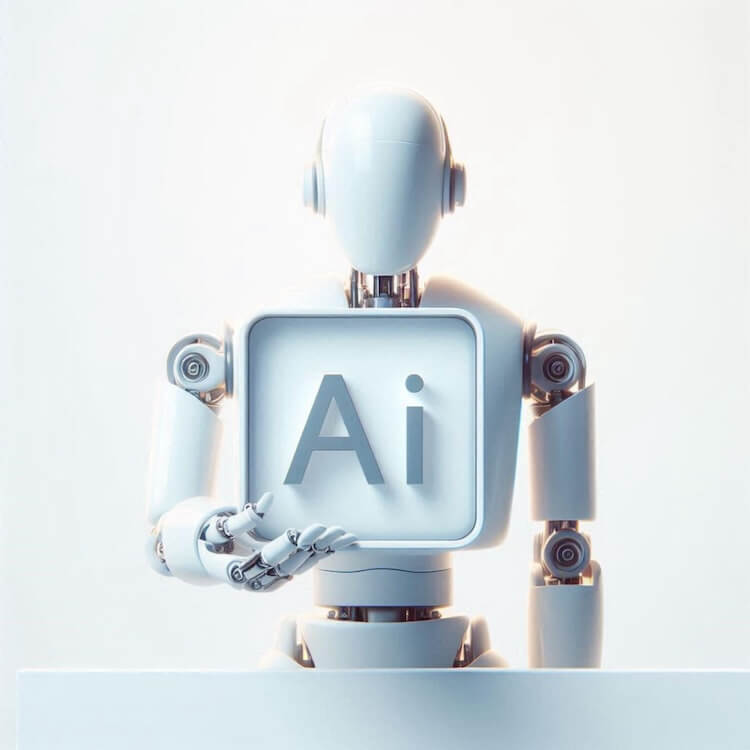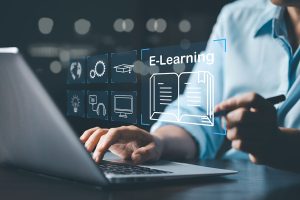
Discover the Best AI Tools for Teaching: Boosting Efficiency
- Author: Urban Rotar
- Published:

How can AI tools help teachers with lesson planning?
AI tools assist in lesson planning by generating comprehensive resources, assignments, and quizzes based on curriculum needs. They save time and provide tailored suggestions, allowing teachers to focus on student engagement.
Are AI tools safe for student data privacy?
Reputable AI tools prioritize data security with safeguards in place. However, it’s essential for educators to stay informed about how these tools collect and store student data.
Can AI tools replace teachers in the classroom?
No, AI tools are designed to support teachers, not replace them. They automate repetitive tasks like grading and planning, allowing teachers to focus more on student interaction and personalized teaching.
Key Takeaways - Best AI Tools For Teaching:
AI tools boost efficiency, streamline grading, and enhance lesson planning for teachers.
Personalized learning is supported by AI, allowing students to engage with customized learning plans.
AI-generated presentations and visually appealing slides can be created with just a few clicks.
The best AI tools for teaching simplify classroom tasks, saving time and increasing engagement.
Ethical considerations, including student data privacy, must be prioritized when integrating AI tools into education.
Introduction to AI Tools in Education
AI tools are everywhere, and they’re making a big splash in the classroom. Their benefits are endless, especially when it comes to boosting efficiency and engagement. Imagine software that can grade assignments for you, or platforms that adapt to each student’s learning style. These tools not only save time but also make learning more personalized and interactive.
Generative AI is one of the stars of this AI revolution. It can create teaching materials, lesson plans, and even assessments from scratch. AI-powered platforms also offer teachers a suite of resources that can reduce the workload and increase productivity. By supporting educational content creation, AI tools help educators find new ways to make learning more engaging and accessible.

Instructional Design with AI Tools
AI is transforming the way teachers approach lesson planning. With tools that can assist in creating comprehensive lesson plans, teachers can now design engaging lessons without spending hours on preparation. Imagine entering a topic, and within minutes, having a set of resources, assignments, and even quizzes. AI tools are here to make that a reality.
Whether it’s generating assignments or suggesting content based on the curriculum, AI tools like generative AI can provide personalized support. This means teachers can save time and increase productivity, which leaves them more energy to focus on engaging with their students. And let’s face it, having a platform that helps with lesson planning is a huge win for any teacher looking to create more effective lessons.
Content Creation and Presentation
AI tools have also made it easier than ever to create visually appealing slides and presentations. Tools like Magic Write allow teachers to develop stunning visuals with just a few clicks, eliminating the hassle of designing from scratch. These presentations aren’t just pretty—they’re tailored to enhance learning. AI-generated content can help support any educational subject, making lessons more engaging and accessible for students of all ages.
When it comes to educational content creation, AI is a handy assistant. With platforms that generate engaging slides and provide useful teaching resources, educators can focus on the content and the delivery, not the design. The time saved by using AI tools for creating presentations is worth its weight in gold.

Grading and Feedback with AI Tools
Grading can be one of the most time-consuming aspects of teaching. AI tools come to the rescue by streamlining this process and providing personalized feedback. Using platforms that analyze student performance, AI can assist teachers in providing detailed responses to students with just a few clicks. Feedback bots are also gaining popularity, offering real-time comments and suggestions to students while they work on assignments.
With AI-powered grading tools, teachers can boost accuracy and reduce the time spent on assessment tasks. And because AI tools can adapt to different grading systems, they allow for a more personalized approach, helping each student feel supported in their learning journey.
Personalized Learning with AI Tools
Personalized learning has become a buzzword in education, and AI tools are central to this movement. AI platforms can analyze student learning styles and create customized learning plans, tailored to each individual’s needs. These systems allow students to work at their own pace, offering support in areas where they need improvement.
For teachers, AI tools offer the chance to engage students in ways that were previously impossible. By providing personalized feedback and adapting the curriculum to fit each student, AI ensures that no learner gets left behind. The result? Increased motivation, better performance, and more meaningful learning experiences.
A Few Tools for Specific Tasks
When it comes to specific teaching tasks, a few tools stand out. For instance, AI tools can assist with creating quizzes and assessments in just a few clicks. These platforms analyze the learning material and automatically generate questions, cutting down on preparation time.
Whether you’re working on grading, lesson planning, or educational content creation, these AI tools make teaching more efficient. The ability to save time on tasks that once took hours is one of the main benefits of using AI in the classroom. After all, the more time saved, the more you can invest in your students’ success.
Implementation and Integration of AI Tools
Getting AI tools integrated into your teaching practice can be smooth sailing if done right. Start by identifying the tools that align best with your teaching needs. From there, it’s all about trial and error—finding which AI platforms truly make your job easier. The good news is that most AI tools are intuitive and designed with teachers in mind, so the learning curve isn’t steep.
AI tools offer more than just efficiency. They empower teachers to rethink traditional teaching methods and explore new ways to engage with their students. Whether it’s AI tools for lesson planning, grading, or creating visually appealing slides, these platforms can transform your classroom.

Ethical Considerations and Student Data Privacy
Of course, we can’t discuss AI tools without addressing the ethical considerations. Student data privacy is a significant concern when implementing AI in education. While these tools offer many benefits, it’s crucial to understand how they collect, store, and use student information. Fortunately, most reputable AI platforms have privacy safeguards in place.
Teachers should always stay informed about the ethical implications of AI tools, ensuring that data security is a priority. Balancing innovation with responsibility is the key to making AI work in education without compromising student privacy.
The Future of Teaching with an AI Tool
Looking ahead, the future of teaching with AI tools is bright but filled with challenges. As more AI tools enter the market, teachers will need to be selective, picking the ones that genuinely add value to their classrooms. There’s a growing need for these platforms to integrate seamlessly into existing teaching practices without replacing the human element of education.
The potential benefits of using AI tools are enormous. From saving time to increasing engagement, these platforms promise to transform teaching for the better. However, it’s important to remain cautious and thoughtful, ensuring that technology enhances rather than overshadows the personal touch of teaching.
Conclusion about the Best AI Tools for Teaching
AI tools are changing the face of education, offering new ways for teachers to boost efficiency and engage students. Whether you’re using AI for grading, personalized learning, or lesson planning, these tools save time and help deliver more impactful lessons. Generative AI, in particular, is a powerful resource that can support teaching resources and educational content creation.
Incorporating AI tools into your teaching practice isn’t just about keeping up with trends—it’s about making education more efficient, personalized, and engaging for everyone involved.



